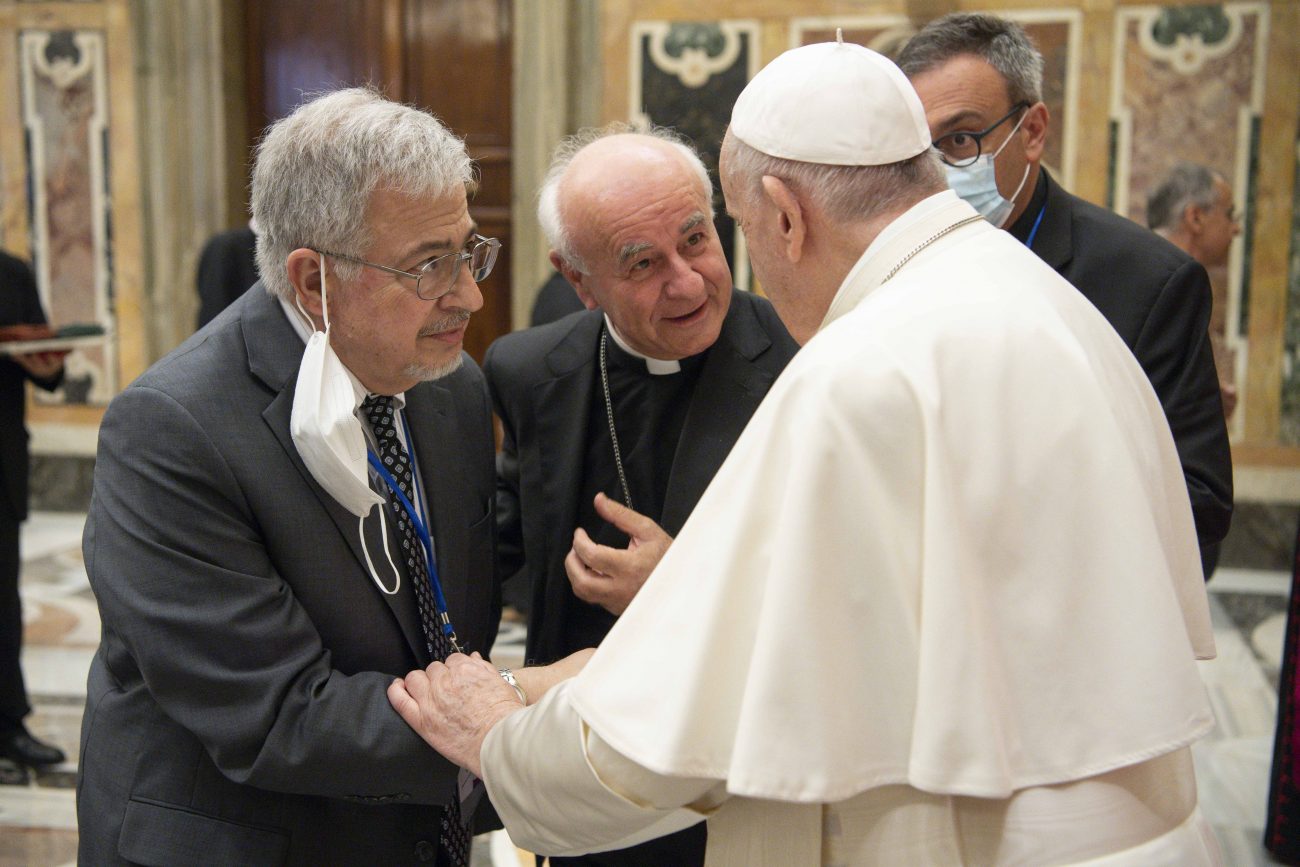VATICAN CITY (CNS) — The fear, sickness, death, mourning and economic impacts of COVID-19 should make people who are relatively well off and have access to health care think about “what it means to be vulnerable and live in precariousness on a daily basis,” Pope Francis told members of the Pontifical Academy for Life.
[hotblock]
Acknowledging how people are “worn down” and tired of hearing or thinking about the coronavirus, the pope insisted the challenges and suffering of the past 18 months would make sense only if people learned from them.
[hotblock]
Meeting members of the Pontifical Academy for Life Sept. 27, Pope Francis urged them to find new ways to collaborate with other physicians, researchers, scholars and theologians in defending human life at every stage of its development and in every condition of health or frailty.
The Catholic Church cannot “water down” the truth that the defense of life includes opposition to abortion and euthanasia — the clearest signs today of a “throwaway culture,” he said. But it also includes continuing the traditional Catholic advocacy for the right to health care for all people.
While disease is a natural occurrence, it often also is the result of human action or inaction, and responses to it are the result of social and political choices, Pope Francis said.
“Moreover, it is not enough for a problem to be serious for it to attract attention and be addressed” with the same kind of global commitment that is being seen in response to COVID, he said. In fact, “very serious problems are ignored because of a lack of adequate commitment.”
“Think of the devastating impact of certain diseases such as malaria and tuberculosis,” he said. “Every year, millions of avoidable deaths occur in the world. If we compare this reality with the concern that the COVID-19 pandemic has provoked, we see how the perception of the gravity of the problem and the corresponding mobilization of energy and resources is very different.”
And while global measures to stop the spread of COVID and to get people vaccinated are good, he said, one cannot ignore the fact that millions of people do not have access to clean water or adequate food.
“I do not know whether to laugh or cry, sometimes I weep, when we hear government or community leaders advising the inhabitants of the slums to wash several times a day with soap and water. My dear, you have never been in a slum: there is no water there and they don’t have soap,” he said.
Statistically “variables such as salary level, educational qualification and neighborhood of residence, even in the same city,” also make a huge difference, he said.
“We affirm that life and health are equally fundamental values for all, based on the inalienable dignity of the human person, but if this affirmation is not followed by an appropriate commitment to overcome the inequalities,” he said, “we in fact accept the painful reality that not all lives are equal, and health is not protected for all in the same way.”
“Here I would like to reiterate my concern that there will always be a free health care system,” he said. For countries that have a free health care system, “don’t lose it, because otherwise only those who can pay for it will have the right to health care and the others will not.”
Universal health care plans, he said, “help to overcome inequalities.”
PREVIOUS: German Catholic lay groups voice frustration with slow pace of reforms
NEXT: Canadian bishops apologize for abuses, ongoing trauma of Indigenous



Share this story